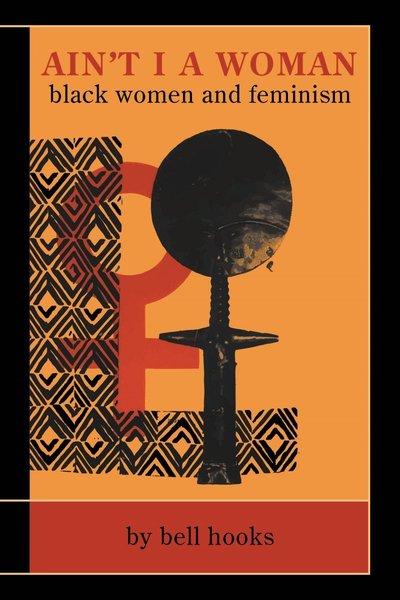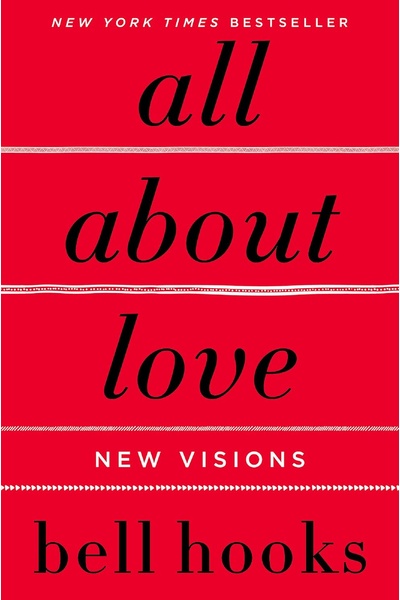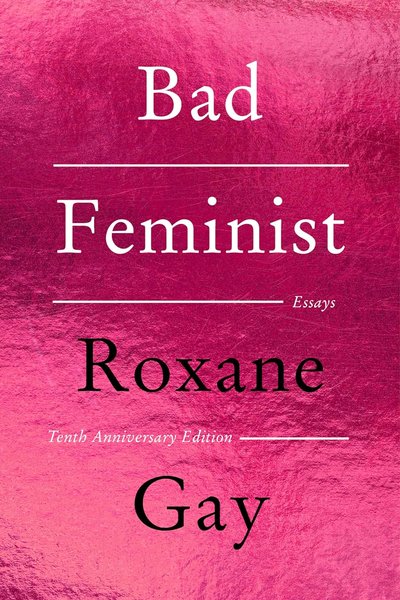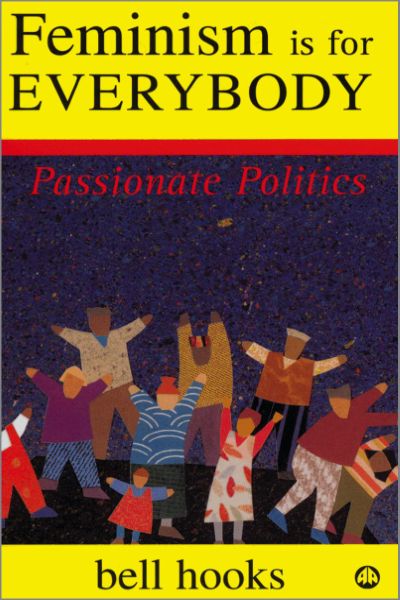Ain't I a Woman: Black Women and Feminism
This groundbreaking work examines the experiences of Black women from slavery to the present, analyzing how the intersection of sexism and racism creates unique forms of oppression. hooks critiques both the racism of white feminism and the sexism of Black liberation movements, arguing that anti-racist and anti-sexist struggles are inseparable, laying the foundation for later intersectionality theory.

📝 Book Review
In 1981, bell hooks published “Ain’t I a Woman: Black Women and Feminism,” a work that became a cornerstone of Black feminist thought. Beginning to write this book at age 19, hooks, with her characteristic clarity and passion, exposed the unique forms of oppression suffered by Black women throughout American history. The title, invoking Sojourner Truth’s famous 1851 speech, immediately established the work’s place in the long tradition of Black women’s resistance to both racism and sexism.
The Historical Urgency of Writing
hooks wrote this book against the backdrop of Black women’s double marginalization in both the feminist movement and Black liberation movements of the 1970s. In an era when both the civil rights movement and women’s liberation had made significant gains, Black women found themselves excluded from both movements that supposedly represented their interests.
Black men didn’t want feminists whom they viewed as betrayers of the cause, and white feminist women didn’t want antiracism to detract from their message of antisexism. Thus Black women, as bell hooks describes, were perpetually between a rock (“chauvinist Black men”) and a hard place (“racist white women”).
This double exclusion was not accidental but structural. It reflected the limitations of single-axis thinking that could not comprehend how multiple oppressions intersect and mutually constitute each other. hooks’s work sought to make this intersection visible and provide a theoretical framework for understanding Black women’s unique position.
Foundational Analysis of Slavery
hooks’s analysis begins with slavery, which she argues is crucial for understanding the contemporary situation of Black women. She examines in detail how slavery not only exploited Black labor but specifically targeted Black women with gendered forms of violence.
Black women under slavery suffered unique forms of oppression: economic exploitation as laborers, forced to perform the same hard labor as men; reproductive exploitation as “breeders,” forced to bear more slaves; sexual exploitation and rape as tools of domination and dehumanization; cultural exploitation, with their motherhood denied and family bonds systematically destroyed; and psychological exploitation through portrayals as hypersexual and unfeminine.
hooks shows how these forms of exploitation created a legacy that continues to affect Black women. Stereotypes developed during slavery—Jezebel (hypersexual), Mammy (subservient caretaker), Sapphire (angry Black woman)—continue to shape Black women’s representation in American culture.
The Devaluation of Black Womanhood
A central theme of hooks’s analysis is the systematic devaluation of Black womanhood in American society. She argues that while white womanhood is idealized (even as it is constrained), Black womanhood is denied or distorted.
This devaluation operates through multiple mechanisms: Black women are excluded from standards of feminine beauty; their strength and resilience are used to deny their need for protection and support; their motherhood is pathologized or ignored; their sexuality is stereotyped as excessive or deviant; and their intellectual contributions are erased or marginalized.
hooks particularly critiques how the “strong Black woman” stereotype is used to justify neglecting Black women’s suffering. While seemingly complimentary, this stereotype denies Black women’s humanity and vulnerability, making it impossible for them to receive support and care.
Black Male Sexism
hooks courageously addresses the sensitive topic of sexism within Black communities. She argues that while racism undoubtedly oppresses Black men, this does not absolve them of responsibility for participating in gender oppression.
She traces how Black men, partly in response to racist attacks on their masculinity, have adopted patriarchal values and behaviors. This includes: attempting to confine Black women to subordinate roles; resisting Black women’s leadership in the civil rights movement; accepting patriarchal hierarchies that view Black women as less valuable than white women; and using sexist language and violence to control Black women.
hooks emphasizes that this analysis is not about demonizing Black men or minimizing racism, but about recognizing how patriarchy harms the entire Black community. She calls for Black men and women to work together to dismantle both racism and sexism.
The Racism of White Feminism
hooks’s critique of the white feminist movement is equally sharp. She documents how the feminist movement, despite claiming to represent all women, systematically excluded and marginalized Black women.
This exclusion manifested in multiple forms: universalizing white middle-class women’s experiences as those of all women; ignoring how race and class shape different women’s experiences; prioritizing issues that primarily benefit white women; failing to address how white women benefit from racism; and using elitist language and strategies that exclude Black and working-class women.
hooks particularly critiques how white feminists used the analogy of slavery to describe their oppression without acknowledging the actual horrors of slavery or their own complicity with racial oppression. This appropriation not only erased Black women’s experiences but reinforced their marginalization within the feminist movement.
Work and Economic Exploitation
hooks’s analysis includes significant examination of labor and economic exploitation. She shows how Black women have always been at the bottom of the labor hierarchy, facing double economic discrimination based on both race and gender.
Unlike white middle-class women who fought to enter the workforce, Black women have always worked—often in the lowest-paid, least dignified jobs. Their experiences as domestic workers, agricultural laborers, and service workers shaped their different relationship to the concept of “women’s liberation.”
hooks argues that the feminist movement’s failure to address class issues made it unable to represent most Black women, whose primary concerns were not career advancement but economic survival and escape from exploitative labor conditions.
Sex, Rape, and Violence
hooks’s analysis of sexual violence demonstrates how race and gender intersect to create unique vulnerabilities for Black women. She examines how rape was used as a tool of racial terror and how Black women’s sexuality was constructed to justify sexual violence.
The legal system’s historical denial that Black women could be raped reflected and reinforced their dehumanization. The stereotype of Black women as hypersexual meant that sexual violence against them was not recognized as violence but as something they supposedly desired.
hooks also addresses sexual violence within Black communities, challenging the notion that only racist white men perpetrate violence against Black women. She argues that addressing all forms of sexual violence is crucial to Black liberation.
Theoretical Contributions
While hooks did not use the term “intersectionality” (Crenshaw’s term came later), her analysis laid important groundwork for intersectionality theory. She demonstrated that: race and gender are not separate phenomena but mutually constitutive; Black women’s experiences cannot be reduced to racism plus sexism; multiple systems of oppression create qualitatively different experiences; and liberation struggles must address all forms of oppression.
hooks also contributed important concepts to feminist theory, including “imperialist white supremacist capitalist patriarchy” as a term describing interconnected systems of oppression; “political solidarity” as a basis for coalition based on shared commitment rather than shared identity; and “radical love” as a force for personal and political transformation.
The Importance of Education
hooks emphasizes the importance of education as a tool of resistance and liberation. She argues that educational deprivation of Black women has been a key mechanism for maintaining their subordination. But she also celebrates Black women’s historical commitment to education despite enormous obstacles.
She critiques how educational systems perpetuate racist and sexist ideologies but also sees transformative potential in critical education. Her pedagogical approach emphasizes: critical consciousness as the ability to question dominant narratives; the communal nature of education, linking personal learning with social change; democratization of knowledge, making education accessible to all; and teaching as a political act.
Impact on Contemporary Movements
“Ain’t I a Woman” has profoundly influenced subsequent feminist and anti-racist movements. Its impact can be seen in: the development of Black feminist thought and organizing; the emergence of intersectionality as a framework for understanding oppression; greater attention to race and class in mainstream feminism; more complex conversations about gender within Black communities; and coalition politics that recognize multiply marginalized experiences.
The book provided language and frameworks for later scholars and activists to articulate Black women’s unique position and demand more inclusive liberation politics.
Critiques and Debates
hooks’s work has also sparked important critiques and debates. Some criticisms include:
Some argue that her critique of Black men could be weaponized against Black communities in a racist society. hooks responds that silence about sexism only weakens Black liberation struggles.
Others question whether she adequately addresses class differences and other variations among Black women. Later Black feminists have built on her work to develop more nuanced analyses of differences within Black women’s experiences.
Some critics argue that her critique of white feminism is too sweeping and doesn’t acknowledge diversity within the white feminist movement.
Cultural Analysis
hooks’s work includes important analysis of cultural representation and its role in shaping reality. She examines how media, literature, and popular culture perpetuate harmful stereotypes of Black women and how these representations affect Black women’s material conditions.
She also celebrates Black women’s cultural resistance—through music, literature, art, and everyday practices, Black women have created counter-narratives that affirm their humanity and resist dominant narratives.
Global Perspectives
While primarily focused on the American context, hooks’s analysis has global implications. She connects Black women’s oppression to imperialism and global capitalism, showing how these systems create similar patterns of exploitation worldwide.
Her work has influenced Black feminist and Third World feminist movements globally, providing tools for understanding how race, gender, and other forms of oppression intersect in different contexts.
Love and Spirituality
hooks’s later work more explicitly develops themes of love as political force, but even in “Ain’t I a Woman,” she hints at the importance of love—self-love, community love, love of justice—in resisting oppression.
She challenges the notion that politics must be separate from emotion, arguing that love is necessary for sustaining long-term struggles for justice. This emphasis on love distinguishes her work from other feminist theories that focus more purely on structural analysis.
Legacy and Continuing Relevance
More than forty years after publication, “Ain’t I a Woman” remains an essential text for understanding the intersection of race and gender. Its insistence on addressing racism and sexism simultaneously continues to challenge movements that attempt to separate these struggles.
In the era of #BlackLivesMatter and #MeToo, hooks’s analysis of how multiple oppressions intersect seems particularly prescient. Her call for inclusive liberation politics continues to inspire new generations of activists.
Publishers Weekly named it “one of the twenty most influential women’s books of the last 20 years” in 1992. Writing in The New York Times in 2019, Min Jin Lee said that “Ain’t I a Woman” “remains a radical and relevant work of political theory.”
Conclusion: Inseparable Struggles
bell hooks’s “Ain’t I a Woman” remains a foundational text in Black feminist thought, not only for its historical analysis but for its continuing challenge to liberation politics. hooks demonstrates that Black women’s struggles are not special concerns for feminist or anti-racist politics but central to understanding and dismantling all systems of oppression.
Her work reminds us that true liberation requires addressing all forms of oppression and their intersections. As she wrote in 1981: “I voiced my conviction to both groups that the struggle to end racism and the struggle to end sexism were naturally intertwined.”
In a world that continues to grapple with multiple, intersecting injustices, hooks’s voice remains vital. Her insistence on recognition of Black women’s full humanity, her refusal of partial liberation, and her commitment to love and justice continue to point the way toward more inclusive and effective liberation movements.
“Ain’t I a Woman” ultimately affirms the power of the question Sojourner Truth posed more than a century earlier. It demands recognition of Black women’s full humanity, not as an afterthought or special interest but as central to any genuine liberation project. In that recognition lies the possibility of a world where all can be free.
Book Info
Related Topics
🛒 Get This Book
 Buy on Amazon
Buy on Amazon Related Books
Book Discussion
Share your thoughts and opinions on this book and exchange insights with other readers
Join the Discussion
Share your thoughts and opinions on this book and exchange insights with other readers
Loading comments...


